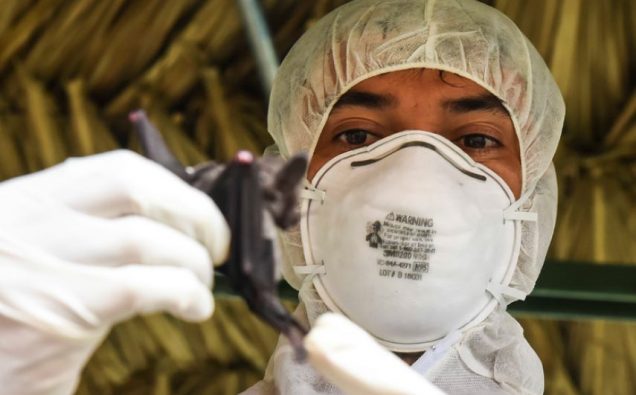
An example of how wide-ranging will be the impact of climate change came when researchers revealed in a new study that humans will face a much bigger risk of virus transmission from animals by 2070 due to a combination of land use and changed climate.
The results of the study, published in Nature journal, indicate at the moment there are at least 10,000 virus species that have the capacity to infect humans.
However, the vast majority of these viruses are circulating silently in wild mammals.
But, according to researchers, climate and land-use change could upend the situation and lead to “novel opportunities for viral sharing among previously geographically-isolated species of wildlife.”
The findings are based on a simulation of potential hotspots of future viral sharing for the year 2070, and warn that densely populated continents of Asia and Africa may face greater risks.
In recent decades scientists have traced back the spread of flu, HIV, Ebola, and coronavirus to the two continents.
The changed situation could drive the novel cross-species transmission of their viruses an estimated 4,000 times.
The bats could be the biggest source of transmission of viruses “because of their unique dispersal capacity.”
The researchers find that this ecological transition may already be underway, and holding warming under 2 °C within the century will not reduce future viral sharing.
In such a scenario, the emergence of infectious diseases could hurt humanity beyond health and economic troubles as painfully highlighted by the ongoing COVID-19 pandemic.
The UN reports that COVID has pushed tens of millions of people into poverty and “pushed back” democracy in parts of Africa.
Drawing attention to the “global pandemic that upended the world and changed it forever, Ahunna Eziakonwa, Director of the UN Development Programme’s UNDP Africa bureau, said, “we have never experienced greater pressure and challenge in our ability to sustain peace and development and a healthy planet, as we experience today.”
“We saw how COVID-19 complicated the effort to maintain or to overcome the insecurity that’s created by many forces including violent extremism and the impact of this, the consequence, affected live and livelihoods but also creating an immense discontent about the population which is led to a regression in democracy”.
The war in Ukraine has further complicated challenges for Africa. Russia and Ukraine, both often referred to as the world’s breadbasket, are major players in the export of wheat and sunflower to Africa, the UN said.
Between them, Algeria, Egypt, Libya, Morocco, Tunisia, Nigeria, Ethiopia, Sudan, and South Africa, account for 80 percent of all wheat imports, which are projected to reach 76.5 million tonnes by 2025, the UN report said.












